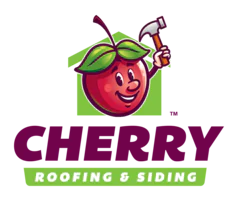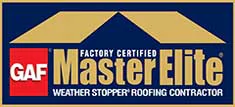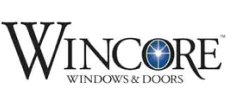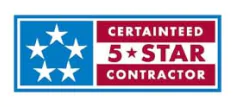Posted in:
A severe storm can wreak havoc on your home’s roof, leaving you facing costly repairs or even replacements.
When New Jersey’s extreme weather damages your roof, filing a claim with your homeowner’s insurance policy can be the first step to getting back on track. Understanding what types of roof damage your insurance policy covers can be crucial in minimizing out-of-pocket repair costs.
In this article, we’ll discuss what roof damage is typically covered by home insurance and factors that can impact your claim.
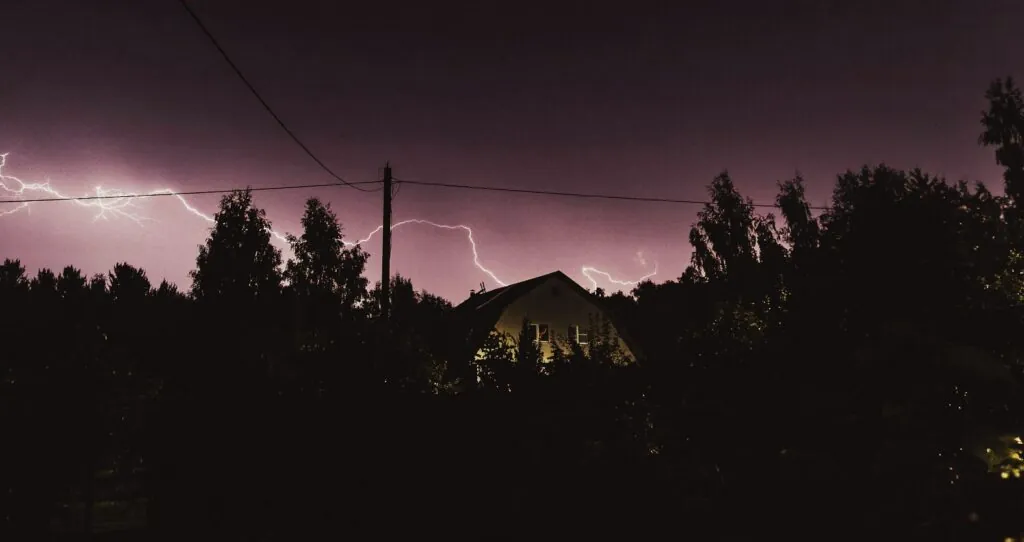
Wind Damage
Wind is one of the most common causes of roof damage during storms in New Jersey. Types of storms that can cause wind damage to your roof include hurricanes, tornados, and Nor’easters. High winds can tear off shingles, dislodge tiles, and cause trees or debris to crash onto your roof.
Most standard homeowners policies cover:
- Shingle damage: If high winds cause your shingles to be ripped off or blown away, your insurance policy will probably cover the cost of repair or replacement.
- Roof leaks caused by wind: If high winds cause a tree branch or debris to puncture the roof and result in leaks, the resulting water damage to your home may also be covered.
- Structural damage: When high winds cause structural issues, such as the collapse of part of the roof, insurance usually covers the cost of the repairs.
Water Damage
Water damage is a common result of severe storms, especially when strong winds or hail have compromised the integrity of your roof. If water enters your home due to storm damage, it can cause major damage to both the roof and the interior of your home.
If the storm caused direct physical damage to your roof – like a hole or torn shingles – and water leaked into your home, your home insurance will usually cover both the roof repair and interior water damage.
Keep in mind that water damage from flooding is not covered by standard home insurance. You will likely need separate flood insurance for that.
Hail Damage
Hail storms can cause significant damage to roofing materials. When hail strikes, it can crack tiles, damage shingles, and weaken the structural integrity of the roof. Even if damage seems minor, such as a few dents or granule loss, hail damage can lead to larger problems down the road.
Insurance companies will usually cover the costs of repairs to shingles, tiles, or flashing that are visibly damaged by hail. A hail storm can cause cracks or openings in your roof that lead to water leaking into your home, resulting in internal damage. Generally, insurers will cover this type of damage.
If your area of New Jersey is prone to frequent hail storms, your insurance company might have stricter policy terms or charge higher premiums for claims involving hail damage.
What Storm Roof Damage Might Not Be Covered?
While homeowner’s insurance covers many types of storm damage roof repairs, certain factors could lead to you having to pay partially out of pocket or your claim being denied:
- Wear and tear: The insurance company may deny your claim if your roof was already in poor condition before the storm. For example, if your roof has curling or deteriorating shingles, your policy probably won’t cover the storm damage.
- Neglect: As a homeowner, you are expected to maintain your home’s roof. If a roof leak develops over time due to a lack of maintenance, your home insurance policy probably won’t cover the resulting damages.
- Deductibles: Some home insurance policies have higher deductibles for wind or hail damage. Review your policy’s deductible stipulations, as this could directly affect how much you have to pay out of pocket before your insurance kicks in.
- Roofing materials: Some home insurance policies exclude specific types of roofing materials. For this reason, it is important to review your policy thoroughly to see if your particular roof type has limitations.
Filing a Home Insurance Claim for Storm Damage Roof Repair
If your roof was damaged in a storm, taking the right steps can help ensure a successful insurance claim and minimize financial strain. However, navigating an insurance claim after a storm can be tricky.
Consider some ways a professional roofing company can assist in the process:
- Assess the damage: A roofing contractor can thoroughly inspect your roof and identify both obvious and hidden damage. This ensures that all storm-related damage is properly documented for your insurance claim.
- Work with insurance adjusters: Your roofing contractor may be able to communicate directly with your insurer and meet with the adjuster during the inspection. This ensures that nothing is missed and that the insurance adjuster has an accurate understanding of the repair needs.
- Provide detailed estimates: Roofing companies can make detailed, itemized estimates for repairs or replacement, ensuring your insurance company has all the information needed to process your claim efficiently.
- Navigate policy exclusions: If your homeowner’s insurance company attempts to deny coverage due to exclusions or pre-existing conditions, your roofing contractor can provide expert opinions to refute these claims. The roofer’s knowledge can help prove that the damage is a direct result of the storm.
- Make repairs: Following a storm, a roofing company can provide immediate repairs to prevent further damage to your home. Once your claim is approved, your roofing company will complete all needed repairs or provide full roof replacement. Experienced roofing contractors offer long-lasting repairs that meet insurance standards.
Look No Further for Your Storm Damage Roof Repairs
Our team at Cherry Roofing & Siding understands how stressful roof damage after a severe storm can be. Our professional contractors are here to help you through every step of your roof repair process.
Our roofing company believes in honest communication and keeping you informed through every step of the roof repair process. Cherry Roofing & Siding brings close to 50 years of experience in the roofing industry, ensuring that we have the skills and knowledge needed to handle any residential roofing project.
If your roof has been damaged in a storm, search no further for the “best roofing company near me.” Contact us today for your FREE no-obligation estimate.
Oct 07, 2024



